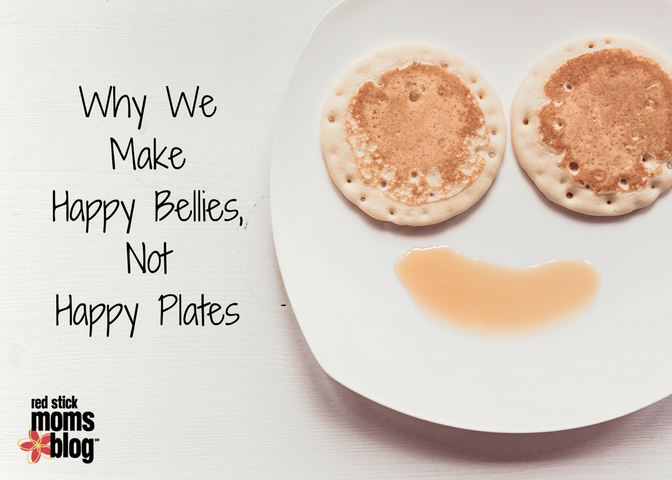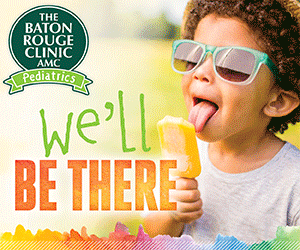There is no question that childhood obesity is a growing epidemic in the United States today. Our relationship with food is so flawed, and we eat too much food that isn’t real food. According to the Center for Disease Control, childhood obesity is linked to a number of different health issues, including high blood pressure, diabetes, breathing problems as well as lower self esteem and social problems such as bullying and stigma. It is a serious issue, with an estimated 1 in 3 American kids qualifying as “obese.”

With statistics like these, I believe that it is my responsibility as a parent to do my part to help my children learn to eat balanced meals and portion size so that they can live a long and healthy life. I am convinced that this learning starts at home. And this is why I have banished the phrase “Make a happy plate” from our home.
I believe in trusting my children to know when they are full. If I push them to always “make a happy plate,” then they are going to learn to ignore her hungry / full signals that their bodies are sending them, and instead will learn to always finish whatever food they are given. With out of control portion sizes at restaurants, this would be a disastrous habit to develop and a dangerous road to go down.
You don’t have to eat it.
I put a variety of things on my kids’ plates at every meal – fruit, vegetables, protein, and carbs. We do not pressure them to eat all of it, and they never do (well, he does, she doesn’t). I want to offer them a variety so that if they say “I don’t like this,” they have other options on their plates. I tell my kids, “You don’t have to eat it” if they complain. I encourage my kids to taste everything, but if they don’t like it, “You don’t have to eat it.” To be clear on this, I don’t stop serving carrots or beans or whatever the offending food is (right now it’s potatoes … who doesn’t like potatoes?!) – they might it like it tomorrow, after all. Because I know I’ve given them just a bit more, I certainly don’t want to pressure them to eat it all.
So when they tell me they are done, I ask them if their bellies are – if they are full. I have to remind my daughter that this it it until snack time or even it for the night. When she assures me she’s done, I let her be done. Sometimes she’s only eaten a few bites, and I put her plate aside until she comes back 30 minutes later to tell me she’s hungry again. But most of the time, she really is full and that’s the end of it. And I’m glad that I didn’t pressure her to make a happy plate and overeat. I know she hears “Make a happy plate” from someone because when she finishes her food, she proudly announces that she has made a happy plate. I do my best not to praise or reward her for this, but tell her that I’m proud of her for trying a new food or eating vegetables.
Will this work forever? I don’t know, but I know that it is my responsibility to try. At least while they are in my house, my children’s health is my responsibility. I don’t want to set them on a life-long struggle of health issues that are brought about my childhood obesity, so for now, we make happy bellies and we forget about happy plates.



















